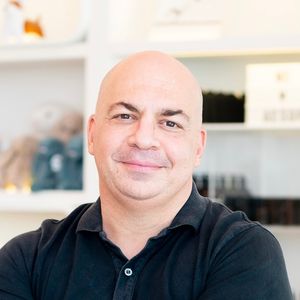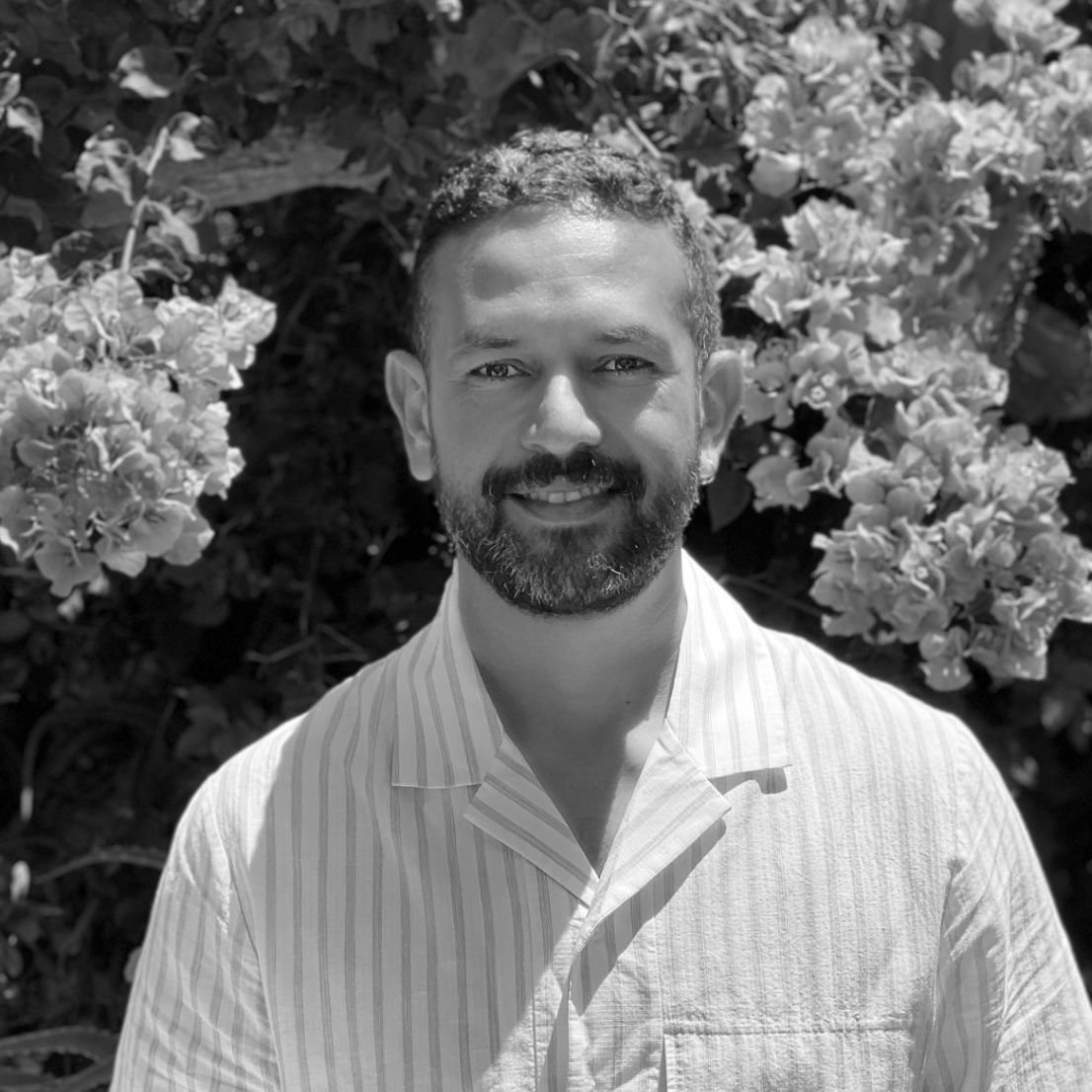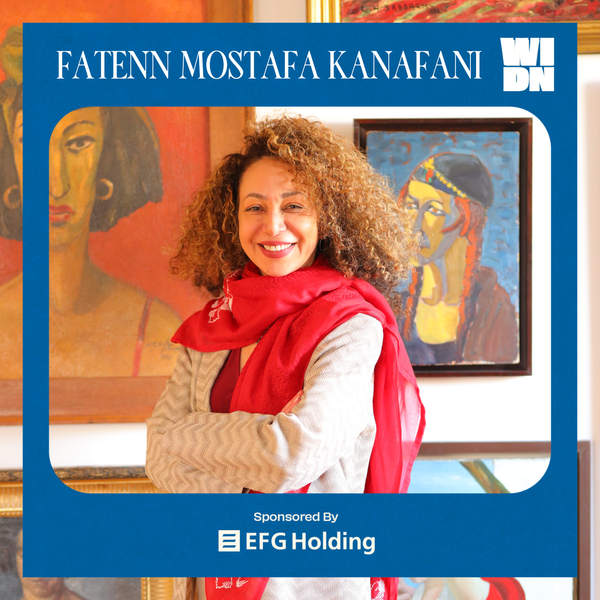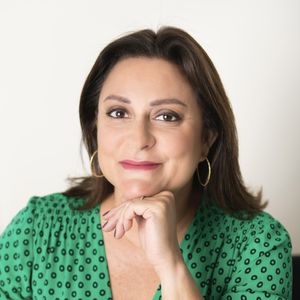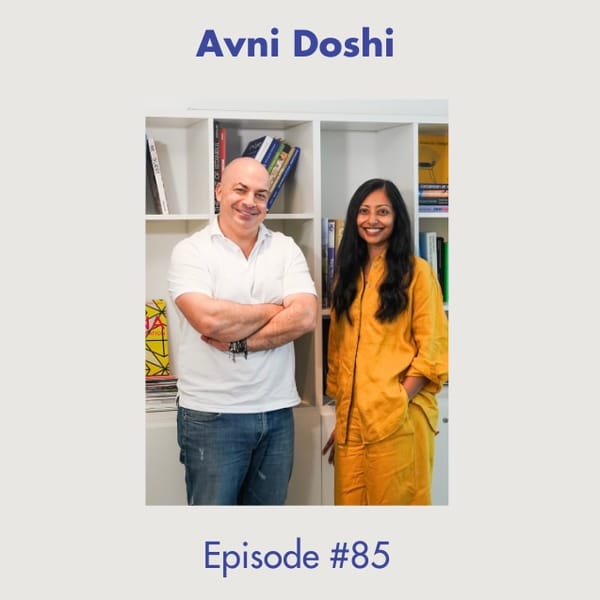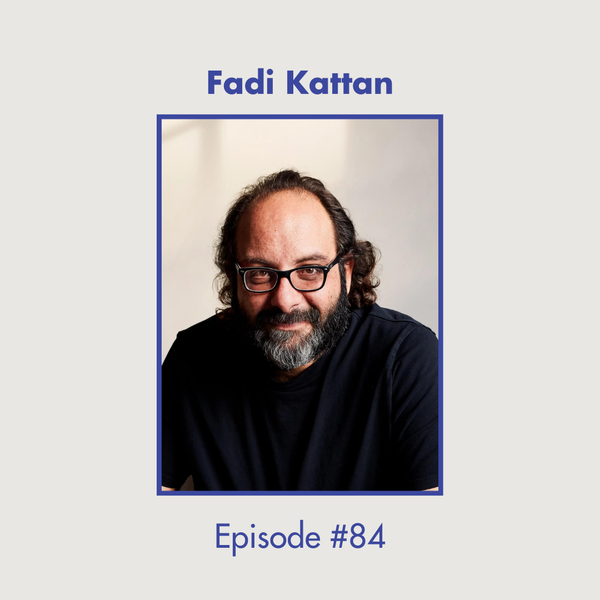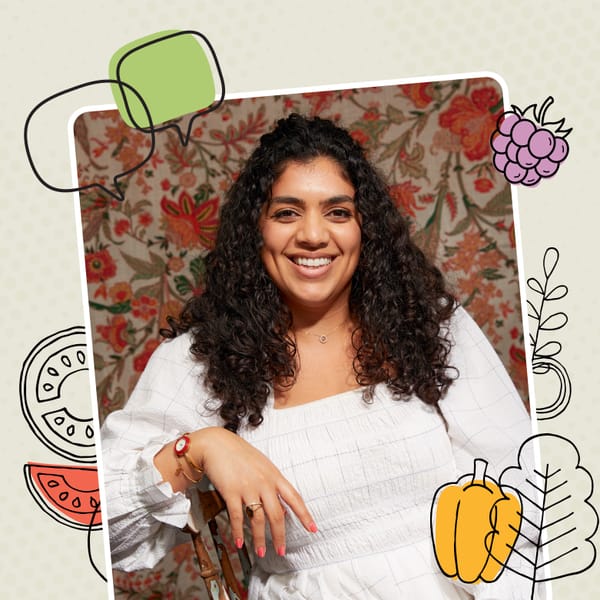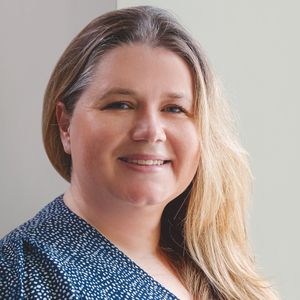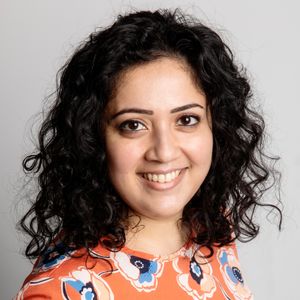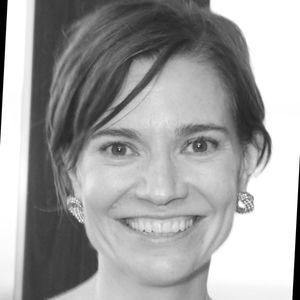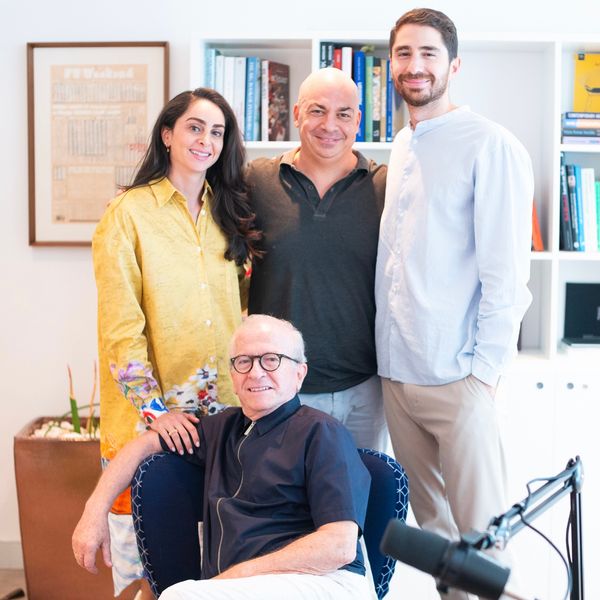In this week’s episode we are transported to Cairo via Mexico City. Hashem chats with Mohamed Elshahed, curator, architectural historian and author of Cairo Since 1900: An Architectural Guide. Hashem and Mohamed expand on how Cairo, the architectural compendium of 220 buildings and sites, was put together.
They also uncover the challenges and surprises Mohamed and his students encountered during the elaborate process, such as the lack of documentation and presence of women architects. An inspired conversation, Hashem also finds parallels between his own experiences living with family members in academia; Cairo; the POV of an artist's appropriations and how Instagram’s Cairobserver became a sleeper hit.
Transcript
[00:00 - 00:22] Welcome to the Lighthouse Conversations, a podcast featuring entrepreneurs and tastemakers from the world of arts, culture, tech, and of course, food. I'm your host, Hashem Montasser. If you're joining us for the first time, hit the follow button on your podcast [00:22 - 00:47] player, so you'll be alerted when we have a new episode, typically every second Thursday. You can also find all of our episodes on our website, thelighthouse.ae/podcast. They include some amazing guests like Daniel Boulud, David and Nicolas, Fadi Ghandour, Manal Ataya, Nada Debs, the list goes on. Today, I'm joined remotely by Mohamed Elshahed, a curator, historian, and the [00:47 - 01:10] author of a fascinating book titled Cairo Since 1900: An architectural guide, which is the first comprehensive guide of its kind. Mohamed is a multifaceted talent and has, among other things, curated the exhibition Cairo Modern at the Center for Architecture in New York, the British Museum's Modern Egypt Project, as well as Egypt's winning pavilion at the 2018 [01:10 - 01:31] London Design Biennale. He's also the winner of the 2021 Egypt State Award for Architecture Publication. When I'd last spoken to Mohamed, he was based in Los Angeles. And after getting on an early call, I felt, well, a bit of form of frankly, learning that he's now based in Mexico City, one of my favorite cities in the [01:31 - 01:53] world. We dug deeper into all sorts of stuff, his process, how his book project came about, and how his hybridity played a part in his pursuit to understand the world through an architectural lens. I'm going to just say this on the record that, once again, I'm not competitive at all, but your background, yeah, it completely dwarfs mine. [01:53 - 02:13] So tomorrow, I have to do a complete redo. You know, I'm going to be one of these guys that can superimpose. You will have no idea. Look, I think good taste and good aesthetics, I think go hand in hand with [02:13 - 02:34] you and the kind of work you do. So, and I know it's late in Los Angeles. Thank you for taking the time. I'm not in Los Angeles. I'm in Mexico. Oh, you're in Mexico. That's so much more fun. It's much more interesting. It's cool in Los Angeles. Then we're going to talk about that too, because that's so many parallels to Cairo as well. I'm so happy to hear this. [02:35 - 02:57] I'm a huge fan of Mexico City. Really, I am. It's so fresh to hear this. From the Egyptian side. You have no idea. I'm like obsessed with it. My business partner at the Lighthouse Hanyu was there a year, I think a year ago or so. I hadn't been in a couple of years and I'm dying to go back. It's such a sophisticated, vibrant and interesting city. [02:57 - 03:19] Yes, it feels like if you, believe it or not, if you scrub Cairo, you'll get Mexico City. This is why I'm here. This is actually why I'm here. When someone from Egypt asks me in a kind of almost condescending way, like, [03:19 - 03:41] why would you have the option to stay in the US and stay in Mexico? I want to tell them you have no idea what you're talking about. There's no doubt about that. I am 100% with you on that. Absolutely. No choice. I think, well, I wasn't going to start here, but let's start with this. What prompted Mexico City? I mean, was it a conscious choice or did it just sort of happen? [03:42 - 04:02] Both. I landed here for the first time in 2014 when I was actually writing, finishing essentially my dissertation before submission and I had like a mental block and I was in New York and I booked a trip to Mexico City, which [04:02 - 04:22] I've been wanting to visit for many times. I wanted to go somewhere inspiring. New York was not exactly my place for inspiration, so I needed to get out. I came to Mexico City, I fell in love. I was so inspired that every day I would spend maybe the first eight hours of the day exploring and then take a rest and then spend like the evening, eight [04:22 - 04:46] hours just writing, even though I was writing about Egypt and Cairo and Egyptian architecture. I was so inspired, but I was seeing here that it allowed me to write. But that was the start. And then from there I came back for visits. And I think around 2017, I had decided that if Egypt and Cairo expires as a [04:46 - 05:07] place where I'm able to feel fulfilled, satisfied, safe, productive, that Mexico City was a really good candidate for the next step. At the end of the day, I'm not from Cairo. I ended up in Cairo by chance. I ended up staying by chance. Fabas, however, the way it happened wasn't so planned. [05:07 - 05:27] That was just a series of unfortunate events during the pandemic. So I just ended up here. Define what you mean. I'm not from Cairo, meaning you weren't born and raised there. Is that what you mean? I'm born in Alexandria. Most of my life essentially has been outside of Egypt. Yeah. I mean, it's just the way things are. I mean, you yourself, of course, live in Dubai. [05:27 - 05:49] So, you know, there's an Egyptian, big Egyptian expatriate community or whatever immigrant, however, we like to call it in the Gulf. And my parents were part of this. Where in the Gulf were your parents? We were in Kuwait. And the things were fine. You know, everything was fine until the Gulf War, essentially. [05:49 - 06:10] And then that really shifted things around and we moved back to Egypt unplanned because of the war and what it did. Five years later, we immigrated to the US. And then 15 years later, I went back to Egypt to live as an adult for the first time. So you've never really spent until then any time in Egypt. [06:10 - 06:32] I'm asking this because it's going to inform a little bit our discussion. Yeah. So up until you went back at what age, what age were you then? So I guess I left 15 and took another 15. So I must have been 30. OK. And pre 15, did you spend any time there? Yeah, so five years from 1990 to 95, which are like, honestly, my most important like [06:33 - 06:53] formative years. I always say I feel I'm very lucky that my childhood zero to ten were in Kuwait, because the Gulf is a really good place to be a child. But I think it would be it would have been, in my imagination, at least at least then not a great place to be a teenager. So I always thought that Alexandria was a great place to be a teenager. [06:53 - 07:16] And in those formative years, the US, I don't have anything to say about it. I mean, the early 90s were a very interesting time in Egypt. I mean, I left in 93. But I have to say, if I look at my late teenage years, early 20s coming in and out, it was probably my best memories ever in so many ways. [07:16 - 07:40] I mean, Cairo was Egypt was in generally, I think, the most important place for me to think. Open enough for us as young kids to enjoy ourselves, feel free and feel and it still had a vibe and interest. I agree. I mean, I just I think of that time family, the way family operated is at least [07:40 - 08:01] in my case and what I observed, not just in my family, but just the neighborhood level that everyone just operated differently. We spent time together differently. The holidays were different. The Ramadan was different in the 90s. I mean, obviously everything changes. It leaves a huge impression when you experience a certain kind of vibe during those years, [08:01 - 08:27] the formative years, the teenage years, late teenage, early teenage. So mine were there during that time. And yeah, it was a great time. I love those memories that those were my favorite five years. And I say it's extremely lucky that I had that formative experience. Not everybody that lived there during those times, of course, necessarily looks back fondly on it, but because I compare it to immigration to the US after, which was not sweet [08:28 - 08:49] and never having the chance to say goodbye to Kuwait from before was also very bitter. So in between, there was this fun five years in Alexandria. When I was researching for this for this podcast in one of your recent interviews, you said something that struck me about Cairo. So I want to start there. [08:49 - 09:12] You said, let it speak for itself. And when I looked, when I read your book, when I think about some of the exhibitions you've done in the UK, in the US, in Dubai as well, my first impression was always obviously you have a point of view and all of us have and you're documenting as well. [09:12 - 09:33] So you're documenting a place that is very rapidly changing. From my experience, talking and observing artists in general, which you're one of them, when they are documenting, obviously, to some extent, they appropriate the materials and then they have a point of view that they superimpose on top of it. [09:33 - 09:53] And there's nothing wrong with that. Yet you said, let it speak for itself. So let's take as a starting point your book Cairo since 1900. Magnificent, by the way. Congratulations. Thank you very much. I'm sure you're going to talk more about it. But just the fact that this is out there documented and we have a physical creation [09:53 - 10:14] that reminds us and shows us what Cairo has, the good, the bad and the ugly. When you say let it speak for itself, what did you mean? I have a couple of ways to approach this question. On the one hand, I think one way I think also about myself as a human being, [10:14 - 10:37] at the end of the day, what are we? We are in a way kind of remixers of information and images. We mix things. I mean, essentially, if you even think about this whole, what I think is probably stupid craze about AI art, ultimately, what does it do? It goes out there and it snatches pieces, bits and pieces of something that exists. [10:37 - 11:03] It remixes it and it produces something. But I feel like whatever technology is always an expression of what we as humans already always do. We take bits and pieces of stories. And, you know, so when I say let it speak for itself, the city doesn't speak, right? It doesn't actually have a mouth and a mind to speak, but it has in its bits and pieces remnants that tell stories, that tell histories. [11:03 - 11:24] And sometimes we just need to pay attention. And listen to the words and let it speak in the sense of uncover what the buildings tell us about the city, about the society, about the economy, about the culture, about all the things that create a place. I do think there's a lot of rushing to narratives. [11:24 - 11:47] And then there's a lot of narratives, old narratives that have a way of sticking around because they are easy. And when in a city, the landscape is changing so fast and so rapidly, that's a very difficult terrain to tell stories, whether old ones or new ones, or to even hear what the city has to say, because when do you get to hear when the bulldozer never stops? So I feel like there's different ways to approach what I mean about let the city [11:47 - 12:09] speak for itself. But definitely that means just start with what's there. Let what's there tell us about the place. But ultimately, can I just push back here? You are, again, in the context of the book, you are choosing the buildings and the monuments that you're going to put in there. So there is a, I'm not even going to call it a bias. [12:09 - 12:29] It's not a bias. There is obviously a point of view. Yeah. So you're letting certain buildings, certain speak and others don't. So how did you go about thinking about that? Yeah, that's actually hugely important. So actually, it's not as much of my prejudice, definitely that shows up and I'm very upfront about it. [12:29 - 12:52] I went into architecture inspired by modernist design, a very specific aesthetic. The more I learned about it, the more I saw it in a very different way. But obviously, I'm drawn to architecture from, let's say, the 40s to the 60s. But the book covers 1900 all the way to the now. Not all of that span of time has buildings that I would say would even fit my prejudice. [12:52 - 13:16] So it's even impossible to limit that selection based on what I like. So what ended up happening is a lot of it, it was also a limitation of information. So recognizing what's out there that's visitable, what's out there that's not visitable, but is important for people to know about that it's there or that it was there. Important because I know something about it that I was able to read because a lot of [13:16 - 13:43] other things are important, but I have no idea because I've never been able to find the story. Nobody documented, nobody interviewed, nobody photographed. So it's actually a mix of the things that I am attracted to, but also what the team members were attracted to because I end up, this is a monumental task that in other cities, institutions that are the equivalent of the Egyptian architects association, [13:43 - 14:05] something like that. Like that scene. Yeah. It's a purely institutional effort that you kind of on an individual or a team basis were able to achieve, which is incredible. I mean, I'm grateful that I was able to pull it off, but it couldn't have happened without about 30 students, mostly of architecture who came in and out of the group as [14:05 - 14:28] volunteers. And I actually give them a big space to, when doing the scouting, to look out for what they also are attracted to and why, and what information we can find. So it's not really just my selection based on aesthetics. It's that a little bit for a certain period for sure, which is the period that I know a lot more about than the rest of, let's say, the span of time. [14:28 - 14:51] But it's also the other team members, what they brought to the table, what exists information based on what we have information about. So a lot of buildings are great, but we couldn't find even the name of the architect or even when it was built. So then that makes it really hard to include in there, even though that was the idea of the book. I mean, of course, I'm not going to say that there weren't mistakes. I am sure no book of this kind would be free of them. [14:51 - 15:14] But again, nobody has done this effort, and it's certainly not on an individual. I was going to say, I mean, you get A for effort. There's no doubt about it and the quality of the work. Were there surprises, Mohamed? I mean, in other words, did particular buildings, monuments, era surprise you in a way you didn't know when you started this project? I mean, the surprise, I mean, here are the surprises. [15:15 - 15:35] The surprises were that it actually was impossible to find women architects named. That, like I thought, with a little bit of research, we would be able to find at least one or two names. They did exist. Unfortunately, it's just the information hasn't been put out there. So that didn't help working on the process. [15:35 - 15:56] I was just surprised that that because, you know, the Architecture Academy in Egypt is full of women today. Yeah, I would have thought that some of them would have at least tried for their own purpose, tried to dig up some of that history, and I would be able to find if I support for the right people, maybe they exist, maybe the stories are out there. [15:56 - 16:17] But that was one surprise. The other surprise, I guess, that comes to mind was how quickly things have changed in like, actually, the change from 60s to 70s is dramatic in terms of quality work and in terms of, I don't know, scope, amount of projects. [16:18 - 16:49] And then from the 70s to the 80s, it like even drops crazy. So there is kind of a perception of that. But I think when you start to actually do the work, and then you realize, oh, it actually is true. There's just suddenly all the artists just disappear. Is it, can we attribute it, and I don't want to put words in your mouth, but that there's a pre-revolution quality and level of architects that maybe started then kind of sliding off [16:49 - 17:13] as the 60s closed off and you started getting the new era, the infitech architects, all of that, is that part of the story? It's a small part, I think part of what I tried to do in the book, but it actually shows up a lot more in my other book, which is in Arabic, which is based on my doctoral dissertation. One of the main arguments I made there is that what we have been told always that there's [17:13 - 17:39] a kind of a before 1952, after 1952, it's a sharp change is much more blurry than that. It's not that sharp of a change. And it doesn't happen overnight. It doesn't happen overnight. And these changes can sometimes trickle over a decade or so or two decades. I think definitely that was part of it. But also to argue that before 1952, there was a strong Egyptian architectural profession [17:39 - 17:59] would be kind of not fair because they were really fighting hard against British authorities who were totally in control of the School of Architecture. I mean, the first time Cairo University had an Egyptian Dean of Architecture was in 1946. That's really late, considering that the school had already been there for a couple of decades. [17:59 - 18:21] So 1946 to 1952, that's a small span of time. So basically, just barely when Egyptian architects started to hold the keys of their profession in Egypt, 1952 happens, they get some jobs if they walked the line with whatever power wanted at the time. But then eventually, the economy really collapsed. [18:21 - 18:48] And I think this is what architecture reflects, number one. Number one is economy, economy, economy. We can't think about buildings without economy. So I think the economic change from the 60s to 70s and then getting more entrenched in the 80s is directly linked to architecture and its quality and how it changes. Last year, I also spoke to fellow bibliophile and one of my favorite people, Nadia Wassef, [18:48 - 19:14] about how she found her narrative arc and why writing should not be used as a form of therapy. You'll find that episode linked in our show notes. When we come back, we'll talk to Mohamed about his magazine-turned-Instagram blog, Cairo Observer, and how he's looking to explore Mexico City as part of his writing. That's right after this short break. Welcome back. [19:14 - 19:41] I'm Hashem Montasser, and you're listening to The Lighthouse Conversations with my guest, Mohamed ElShahed. You know, one of the things that's also mentioned in your book is this idea that to look at those buildings, you have to kind of peel away the dust and the signage and then mentally reconstruct. This reminded me many, many years ago when I was a student at university, I worked on [19:41 - 20:03] a student guide on Cairo, on Egypt, actually. And I was responsible for parts of it. It was another student called John Bentley. I still remember him fondly and myself. And I chose all the places that I thought were cool and gave him all the places that I thought were difficult to access. [20:03 - 20:23] Very Egyptian of me, but it's a different conversation. And I basically had the old guide, and my job was to go to those places, monuments, restaurants, hotels, et cetera, and obviously reaffirm that whatever is in the book, when we still used books in book form, is this is 1995, is valid. [20:23 - 20:43] Anyway, I realized after a while that so much of it was a mental reconstruction, always. I had to reimagine how much as you were walking through Cairo doing this, actually taking pictures, physically documenting, did you have to go into your head and imagine a different situation? [20:43 - 21:04] So this is a challenge for me because I'm a very visual person, number one, and very visual with architecture and cities in general. I don't know where this came from. I suspect, that's a different question. So let's leave it aside. I navigate, I guess, a city very- Don't tell us about your suspicion. That's perfectly fine. Well, let's get to it. [21:04 - 21:26] But I'm trying to find the right way to tackle this one because my imagination is definitely thriving. I just sometimes have to keep it to myself, because it gets me in trouble. Sometimes oversharing, you know, it's not very good. Also, sometimes assuming that others see things the way you do is a huge mistake that most of us make. [21:26 - 21:51] I always say when two people walk down the street, we assume that we're experiencing the same reality. That is absolutely not the case, because each one of us comes from a different history, has different prejudice. I like trees, you don't like trees. I notice balconies, you don't notice balconies. You notice dog poop on the sidewalk, I notice the plants. You know, even asking people to reconstruct mentally is kind of a challenging request, [21:51 - 22:12] because you don't really know what you're getting at the other end. Everybody will imagine whatever their prejudices allow them to imagine, and the information that they have will allow them to imagine. For me, because the research started before the on-site visits, a lot of the images were in my head, so it was easy actually sometimes to see the present and then remember the picture [22:12 - 22:34] that I've seen when it was just completed, you know, 60, 70 years ago. So that kind of reconstruction on-site can happen right away. But not everyone saw the old picture. And that's what I try to do in the guide, is I know that you will grow maybe if you're able to see the building if it exists on-site. So then what you're missing is the old picture, so that you're able to see the old and new. [22:34 - 22:55] Because the new will also keep changing, at least under the current circumstances. Was it also trying to preserve the old or no? I just think it's important for people to be able to see the images, the old images, because they are simply what everybody who came together to create a building intended, [22:55 - 23:18] I guess, you know, or that's the best case scenario of what they dreamed. That published picture when it was first completed, which is obviously going to be very different from whatever happened to the same site after history, after events, after, you know, change in laws, after deterioration, after remodeling, you know, all of these things are just the [23:18 - 23:39] life of the building, not just, I mean, the life of the building is also an important, obviously, this is the story of the building, the life of the building. But it never in our situation is very rare that the birth point of the building and where it stands today is a crappy pace. Usually a lot of change has happened. Definitely a lot of changes happen. [23:39 - 24:00] And yet you avoid, at least from my perspective, so traffic and nostalgia, which I think is something many of us fall prey to whether we like it or not. So do you feel that overall this project was about something hopeful, something filled potential, neither of the two, just pure documentation where today, a few years [24:00 - 24:23] after you finish this project, where do you sit on this gamut of where you see it? I mean, obviously the book is more factually oriented anyway, but even the preface, even the whole project doesn't feel to me like, look at the disarray now, it doesn't have that feeling. That's not, I don't, because, you know, I feel like a lot of people use that narrative [24:23 - 24:48] already and maybe they definitely didn't for me at the time anyway, but I also felt that my take on nostalgia is the past minus information. I feel like when you have access to bits of the past, but there are missing fundamental pieces of information to really help you imagine, you'll never be able to re-imagine [24:49 - 25:12] definitely a moment of time that we never even lived, right? It's always going to be a reconstruction of the bits and pieces of details that we have. If we only have an image of a postcard, that's very little information in some way. Of course, it's also not very, very little, because a picture is a lot. But if you have the picture of the postcard with more information about who published it, who took the picture, where is the place, what's it like today, you know, and then some [25:12 - 25:35] more context, suddenly, I think you go from nostalgia to history. I think history is always also like, it's never drawn to, I mean, we cannot claim to ever have complete histories, right? It's just a little bit of version of the past and nostalgia, I think, in terms of being closer to what might have actually happened, I think. And in your Instagram page, Cairo Observer that you have, I think that's where you allow [25:35 - 25:57] yourself to be a bit more playful. Like you don't need to really be following facts and figures in such a, you know, you know what I mean? Because it's obviously an account, you know, it's very different project. There, it has a very different feel to it. Talk to me a little bit about this project. I know it didn't start as an Instagram blog, but it kind of morphed into that. [25:57 - 26:20] Yeah, I mean, the Instagram account for Cairo Observer started very late, considering that Cairo Observer, which is, by the way, just basically, let's call it my pen name. I think some people, paranoid, I guess, with whatever vision, think that this is some institution or something. And then like, you know, other people send me messages like, I hope your team gets to [26:20 - 26:45] see this. I'm like, there is no team. But just to be clear, it's just one person who was shy about using his real name. So it started with like a pen name, like everybody had like a thing. But now I put my name attached to it. Khalas a'ayt, ta memfa, just that. But that page actually started during the pandemic. Yani, yani, I had started the account maybe just before, but I never really used it. [26:45 - 27:08] But when the pandemic happened, and I had plenty of time and a lot of uncertainty and confusion, you know, I like to keep my mind growing. And I really love the material that I have access to and that I look forward to learning more. It's great. I love this stuff. I mean, this is passion. I mean, I think also it's important to say that everything I'm doing is kind of something [27:08 - 27:33] I'm passionate about. I think if I had a different approach to life, I probably would have been, well, more richer, more stable, like all of these things, right? But that's not me. Part of the reason I actually did this page while the pandemic was happening in that situation was, I think, the best evidence that this is just stuff that I love. You know, someone who would see it as a chore probably would deal with figuring out what's [27:33 - 27:57] going on with this international health crisis and how it affects their life, instead of churning all of these posts day out and, you know, multiple sometimes during the day. And I think it was a way to not leave all these things on my computer. It was just to keep them moving. You know, it wasn't clear when the next exhibit was going to be because things got cancelled. It wasn't clear what the next essay that's going to get published is going to be. [27:57 - 28:17] You know, I always feel like, okay, what are you going to do with all this stuff? Because I think the worst thing that people can do is have access to stories, the images, the information, and keep it to themselves. You know, it was very interesting for me. I'm the son of two academics. My wife is an academic. [28:18 - 28:39] And when I look at your trajectory, kind of your interest, you know, obviously, you seem to have very consciously tried to avoid some of the tightropes. And this comes up in some of the research about you as well, of academia, which I can completely understand. So my parents grew up at a time where really academia or academic pursuits meant something. [28:40 - 29:00] And today, this is a personal view that there are so many different channels to pursue knowledge and knowledge production and so many different ways to disseminate them. And it's a big transition. And I see it, you know, across still having access and network of academics, friends, and so on, even my parents' friends. [29:01 - 29:23] How do you feel about this? Because clearly, you've made some, I don't know if they were conscious choices, or not so conscious. But when I look at your CV, and your trajectory, I feel it feels like, okay, on paper, and then I want to hear your view, someone who kind of pursued a somewhat traditional academic [29:24 - 29:48] career at the beginning, well, at least certainly up to, you know, your PhD and the work you the thesis, which you have to do, but then made very conscious decision about how you want to disseminate this, this knowledge, whether through the projects you're doing. And at some point, you say also in one of the interviews, sorry, it's a two part question. I'm happy to curate, for example, but I don't design, like you're making some strong [29:48 - 30:12] statements, walk me through your thinking here. I mean, it's, it's, it's kind of a lot, because it's basically a life journey. I mean, I, the way I ended up in academia was also, by chance, I think you're not the only one. I mean, I had to save myself, because how I saw it, because at the end of the day, I hope that this is what most people are looking to do not in a selfish way. [30:12 - 30:33] But let's save yourself just like your well being, you know, you need to make sure that you're well, and that hopefully it makes others around you are well, you know, I was an immigrant 15 year old when I arrived in the US, I hated it, you know, and honestly, I just was so confused. It was like, what's going on here? Why is everybody so rude? Why is this ugly? What's happening? You know, like, just never understood. [30:34 - 30:56] And it was kind of a crash with reality. And my options there, given my profile, my name, immigrant from Middle East, Egypt, Muslim, whatever, all of this stuff. And obviously, my family was very impacted, not to go into personal things, but I've talked about in other interviews, you know, surviving the changes that come up with a war, and then [30:56 - 31:19] immigration, these are not very easy things that a family can go through, if it's obviously out of their control. Anyway, what I'm trying to say long story short, by the time I got to college, I had to make some decisions. Architecture school was the closest thing that I can relate to. My father did architectural drafting. But very quickly in architecture school, I learned that, oh, this is preparing [31:19 - 31:43] people to do something that I don't want to do. Which is becoming an architect. Well, I didn't mind. I mean, I like the idea of becoming an architect. But when I saw it from the perspective of school, it looked more like becoming an underpaid worker in an architect's office. I mean, that's what it looked like, you know, because the students who were doing internships [31:43 - 32:06] were literally drawing toilets and doorknobs. And I thought, oh, I'm not looking forward to that. Like, that's not what I want to do. Like, what does that have to do with why I got into architecture? I mean, this is the thing. And academia, I think, showed itself early on there. The school system, the university system, it prepares professionals to fulfill certain roles. It doesn't create free human beings, free thinking people. [32:06 - 32:29] Yeah, it's nice if you pick that up along the way, but that's not why you're paying $50,000 to go to a school. So that wasn't the way to keep growing. And that's how I ended up in academia by applying for a master's. And if I had happened by chance, and then the master's was, you know, basically architecture history focused. And then that was my new introduction to a whole new realm of architecture. [32:29 - 32:55] And from there, I realized, well, it actually has its own problems. And then I went to Middle East studies. And but unfortunately, you know, I think I did a lot already during those years when I was a student. Not a lot. I'm not praising myself. I'm just saying I did a lot in trying to figure out like where I'm going with this, you know, like just, and the trajectory was partly shaped by me missing Egypt, which is why I decided [32:55 - 33:16] to do my thesis on architecture in Egypt, because it was missing in my education. The academics who were teaching didn't know much about what I wanted to talk about, which is 20th century Egypt and its architecture. So I tried to fill something that I thought was missing in my own education. But academia moving forward after being a student was a total nightmare. [33:17 - 33:38] Prejudice, racism, all kinds of issues become very clear. I can see people muzzle themselves a lot. I can't help but see through the kind of economic powerhouse that runs institutions. I can't see, you know, I can't unsee the kind of backhanded ways of censorship, you know, [33:38 - 34:04] it's just troubled, you know, and there's so much more I can say about it. So it just didn't feel like my take is I want to be a self respecting human being, I want to live decently. And I want to do something that makes me feel fulfilled. So whatever it takes, if academia is not offering me that then bye bye, you know, and my first job, really only real full time job in a way in many ways, for a big institution was for [34:04 - 34:26] a museum, not for a university, the British Museum. And unfortunately, because of Egyptian, I wouldn't even say politics, but I would just say the kind of weird paranoias that come with certain people in society and whatever, even that project, you know, kind of became the beginning and the end, because it was basically also the last thing I worked on before the pandemic hit. [34:27 - 34:51] A lot of people would tell you, I'm going to give you the counter narrative, which I'm sure you're very familiar with. Well, it gives you a platform, very difficult to do on your own. So you have developed successfully your own platform, even though you're not kind of in mainstream academia, or teaching or affiliated with any university or an academic institution, were you terrified or scared as you went through this process? [34:51 - 35:11] And oh, my God, I might just not be picked up by, you know, you know what I mean? Like people will just, I will do these things. And they'll be like, nice, but like, the book won't get published, or, you know, I won't get noticed. Or I mean, because within academia, you have that. And again, I'm speaking from my parents' personal experience, who were teaching and [35:11 - 35:35] sometimes doing things on the side. But the teaching always gave them this grounding, very different generation, obviously. So was that going through your mind? I think because I was always on the edge of, I always lived a habit, like lived in a particular edge between being okay, and then like, the abyss is like one step away, like, I don't [35:35 - 35:57] know what's coming. It just felt like a little ledge, you know, and somehow over time, I just, I got used to it. I guess this is, you know, the theme of my life, everybody's life kind of has a theme, I guess, you know, and, and that was okay, like I said, while I was a student, because I had fellowships, I had things, so I could have been myself without worrying too much [35:57 - 36:19] about the reception. You know, I never really, I'm also kind of a shy person, which people have trouble seeing, because you can be shy and talk a lot. I think people think that those two things don't go together. Yeah, no, 100%. You know, I talk a lot, and I'm not shy, but I know your type exists as well. You know, like, like, socially, I'm not like eager to be in the spotlight. [36:19 - 36:41] But like, if I have to give a lecture, I'll give it 1000%. You have a lot to say. I'll give it 1000%. Yeah, I'm not going to be shy. I'm not in that context, but I'm not like rushing. So it was just a little awkward, this whole thing about, you know, when when the pandemic hit, I had a really rough moment in life. And I called someone, you know, from academia that I respected to take an opinion. [36:41 - 37:03] And I said, you know, I'm frustrated, because I don't know where my platform is. You know, I have a lot to say, I know I have an audience. Exactly my point. So what did this person tell you when you said I don't have a platform? Unfortunately, I found a lot of people in academia to be very conservative, even the ones who think of themselves to be very liberal in many ways. But you know, a lot of people just accept the institution. [37:03 - 37:23] This is the package. This is what the institution offers. Take it or leave it. And unfortunately, the, you know, that comes with compromises. But like I said, I'm happy to hear that. I mean, here's what I've noticed. When you don't pay attention to this whole, like, am I going to get noticed or not? People like the people who need to notice you will notice you. [37:25 - 37:50] So I feel like it's always good to not have lead with that, you know, I think what's more important is to do something that means something, something that also helps others maybe see reality differently, because everybody is lost here in a way, you know, I feel like without each other, how do we orient ourselves in this experience called reality, you know, this is why when you have a kind of a monotonous place in terms of its narratives, you know, [37:50 - 38:11] we call it dictatorship, we call it propaganda, we call it, I don't know, Hollywood, because it paints one version of reality. Well, that's not good, because it leaves very little room to the complexities of what everybody else brings to the table. And I felt like as long as my platform is my ability to just find any space where I [38:11 - 38:33] can say something, that's why it can be an Instagram post, or it can be an academic journal, or it can be an exhibit space in New York, where I have a budget, or it can be, you know, a hallway in Cairo, where I don't have any budget, but I'm going to piece together whatever I can. And you know, it shows when I look, I didn't have the opportunity to see all of them in person. But I look when I look at the work you did in Dubai, when I look at the work you did [38:33 - 38:55] at the British Museum, the great exhibition there, but then the work you did in New York as well. And then your book, what's interesting is I observe, obviously, there's some common theme, of course, it's you at the end of the day, doing the creation and doing the work. But also it's free. In other words, I don't feel you're kind of taking the same material, trying to rehash [38:55 - 39:15] it now in exhibition form, or for an audience that would go to the British Museum, or for the guidelines that they've asked for, etc. And I think that comes from the risk you've taken in your career. At least that's the feeling I have. There's multiple perspectives that you're offering, and multiple thought processes that [39:15 - 39:36] are there when I look at the work. And that's very unusual. A lot of times people come up with like one big idea. And I'm not putting people down, but I kind of feel that rehashing it in different forms, right? You have the big book, this book then turns into a hard copy, and then it has a soft copy, [39:36 - 39:57] whatever you call it. And then you have a paperback format, sorry, and then you have the podcast version of the book. Then you have the... But see, it's the same thing. That's okay. You want to disseminate more, but that's not what you're doing. Yeah. I mean, a part of me wants to say, huh, maybe I am lazy. [39:57 - 40:18] Maybe I should have done that. No, I don't think so. I think you're intellectually curious, and it probably gets a little bit repetitive. Like I can see the allure of I have a big book and I'm Michelle Obama, and now I make a podcast out of it or an audio form or something. That's a very different story. Yeah. She wants to disseminate to a huge global audience. [40:19 - 40:41] That's not kind of your purpose. I think you have a point of view. Yeah. And you want to probe. I think what I've tried to do, I mean, the pool of material in a way that I work with is consistent. I mean, even though sometimes it's film, sometimes it's posters, sometimes it's photography, sometimes it's architecture, sometimes it's just historical events that stitch the pieces [40:41 - 41:03] together. It's kind of consistent in the sense that it's part of the same life world. That's one thing that I should say on this. But the other thing I should say is, you know, I find it always hard to balance reception with what you want to say. For example, sometimes I can post a picture of flowers, and then someone will say, oh, [41:03 - 41:24] this guy needs to, you know, I don't know, play some football or something to balance it out, because, you know, it sounds like he's getting soft. And then I can post a picture of myself boxing. And then a woman will be like, oh, it sounds like he needs meditation, because he's like, this is getting edgy, you know, he's boxing. So I'm actually using an example from my social media this morning. I was like, oh, God, you can't do anything right. [41:24 - 41:49] You know what I mean? It's like, okay, I mean, if things get that complicated, with literally that kind of simple communication of like, oh, here are some flowers I bought versus here's my boxing class today. Yeah, it's not mutually exclusive. We all have various sides. Yeah, but imagine, you know, this is just a simple example. Imagine how messy it can get when you have this type of material that's also like, you [41:49 - 42:10] know, just from a period that I wasn't even born sometimes. So I think that the variety is there and a lot of it can be milked. Yeah, I mean, what you're saying is right. I, you know, you can, I can use one of these projects to do many iterations. I honestly think and I'm not gonna like make this sound like it's all decided because a [42:10 - 42:31] lot of the decisions in my case are also circumstantial. You know, I think, for example, when I did the book, initially, there was an idea to do an audio tour with an app. And I was excited about it. But again, with when life and circumstances change too fast, then you start to prioritize and say, well, I guess I already did the book, maybe the app is not the most important right [42:31 - 42:58] now if my survival is on the line, which was actually the case at some point. So so so projects like that, that are like offshoots or that give an existing project another life, almost, you know, the luxury in my case, I would say, I think if certain things were in place, I probably would have done this. I don't think it's a bad idea. I probably would have done this, I don't think it's a bad thing. But I do think ideas need to bring the next one before we get stuck in one. [42:58 - 43:18] It's easy to get stuck. Are you working on something specific right now? Well, if I tell you the list, yeah, and either you'll think I'm crazy or either. No, I don't think you're crazy. No, I was, I guess, thinking in my head about whether being in Mexico City, and we talked [43:18 - 43:42] earlier, the parallels between Cairo and Mexico City, whether this has inspired any particular direction. So I have a few, let's say I have a few backed up projects that I haven't had the chance to let out of my system, but they belong, let's say, to old me. That I think I would definitely still want to get them out as fast as possible, probably [43:42 - 44:07] will do my best this year, as I hope life is getting stable a little bit, because it hasn't been in the last few years, moving to Mexico came with a lot of tumultuous events in the world and in my personal life. And so of course, work and production was affected. I haven't had access to my own books and library. Since I left Cairo, they're still there in boxes, just complications over getting them [44:07 - 44:29] here. So part of what I have on my to do list are definitely projects that feel like belong to pre-Mexico City, Mohammed. And now that I'm here, you know, there is definitely a page flip that's happening right now as we speak in slow motion. It doesn't mean that I'm not going to be writing about Cairo anymore. I did my PhD on it, I've invested all my 30s in it. [44:30 - 44:53] It's just that my reality has also now brought another place that I love closer. And I think Mexico City will definitely make an appearance more in the content of what I do in the future. And I think you already see it a little bit. You know, I've been living here for almost three years, but I was shy to start pretending like I'm one of those expats who land in a place, and then suddenly they're giving tours [44:53 - 45:17] and charging people money for it. You know, this happens in some places, Dubai, Egypt, I don't know. So anyways, so I took my time before I feel like I can say like, hey, I think I have something to say about this place. It takes time to develop your voice, and you need to feel confident sharing that voice. Definitely. And it's definitely going to have to do with comparing with the part of the world that [45:17 - 45:39] I have studied in the past. So it's going to be a kind of an evolution as opposed to a revolution, I would say, in terms of what I do and content. For Egypt and Cairo in the Middle East and the global south, and then Mexico and Latin America are just kind of more now part of my mind. So let's see what comes out of that. But I want to finish those old projects first, definitely. [45:39 - 46:01] And when you look at the new projects and the new you, as you said, is there a particular form that you have in mind or you're letting it evolve? I think I need to let it evolve. But I know for sure the things that I didn't necessarily think I would ever do in my life, like write fiction, which maybe a lot of people go through that when they hit 40 or something. [46:01 - 46:25] But, you know, I'm 41. And I crossed those last few years. I'm 49. I'm still waiting. So, yeah, thank you. I don't know. It just suddenly feels like I want to tell a story. That's definitely something that I'd like to get out of my system that I never thought about before. I even thought about other formats. You know, I have a dog, an Egyptian Baladi dog, a rescue street dog. [46:26 - 46:46] And I was even thinking, you know, wouldn't it be nice? We always underestimate children. And, you know, a lot of the stuff that's sold to them storytelling wise is really not that mind expanding, let's say. So I thought, why not do a children's book based on my dog, an Egyptian Baladi dog exploring Mexico? Oh, I love that idea. [46:46 - 47:09] I will 100% stock it at the lighthouse. Yeah, I would love exactly. Exactly. You know, it would be about city making, about place, but through the perspective of an Egyptian. That is so cool, by the way. And, you know, it can have simple lines in English, Arabic and Spanish. And, you know, so these are the ways I'm thinking, I guess, on, you know, a different new me [47:10 - 47:30] thinking more about like, yeah, contemplating why not do these things? It might not happen. It might not just be an idea. But I think it's nice to notice how, yeah, I guess I'm exploring things that I didn't think about before in terms of format. This is great, Mohamed. I mean, this has been honestly fantastic. I am even more excited now that I know that you're in Mexico. [47:31 - 47:52] We will hope to come visit you very soon. It's definitely on my bucket list and my family's bucket list. I wish you all the best with your projects. And honestly, thank you for the output, especially this book. You know, as I said, when I went to the UN in Zemelec and found it there and you and I had spoken about it before it was fully conceived, well, it was conceived, but it [47:52 - 48:16] wasn't out yet. It really warmed my heart and made me very happy because there's so many people like myself who need to have this on their shelves. So thank you. It really, really makes me happy to hear this from you. And thank you for having me, Yani, in this conversation. And I hope it's the first of many, many more to come. Inshallah. Definitely the first of many. Thank you very much. Thank you for joining us. [48:16 - 48:38] If you've enjoyed this conversation, do leave a review in your favorite podcast app. The Lighthouse Conversations is hosted by me, Hashem Montasser. We're produced by Chirag Desai. And our content director is Farah Al-Sharif. You can connect with us on Instagram at thelighthouse underscore podcast and listen to our previous episodes by visiting thelighthouse.ae/podcast. [48:38 - 48:50] We'll see you again in two weeks.

